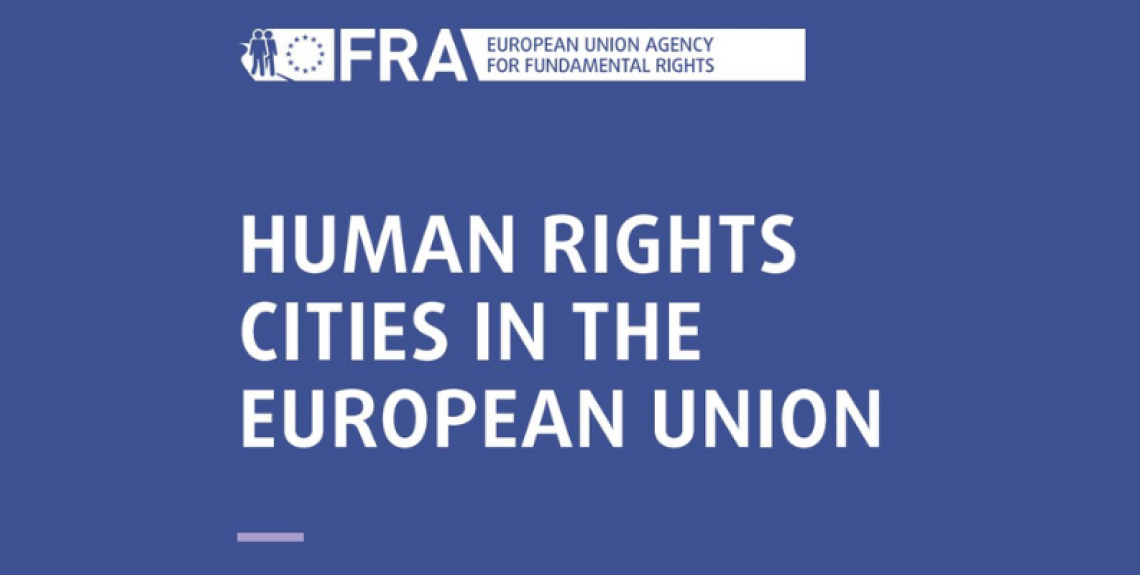On the occassion of the 75th anniversary of the Universal Declaration of Human Rights, we would like to highlight the guide of the European Union Agency for Fundamental Rights (FRA) Human Rights Cities in the European Union, a capacity building toolkit for cities seeking to advance and integrate human rights into people's daily lives. The publication stands out as a concrete toolkit to support cities in promoting and implementing human rights. This guide is the result of collaboration between the FRA, a group of human rights cities that also participate in our Committee, and a set of professionals from the European Union (EU).
"Becoming a human rights city entails explicitly linking such activities to fundamental and human rights obligations. This can have a revitalizing effect that increases trust in local government and encourages public debates that ultimately help to make societies fairer for all." - Michael O'Flaherty, Director of the European Union Agency for Fundamental Rights.
Today, the majority of the European Union's inhabitants live in cities and other urban areas. For this reason, local territories are the ideal and coherent starting point for realizing the fundamental values of the European region: human rights, democracy and the rule of law. According to a survey conducted by the FRA, nine out of 10 people believe that human rights are important for creating a fairer society and addressing inequalities.
The guide is positioned as a toolkit for cities to design and implement policies and strategies to promote human rights. In this sense, it offers a framework for cities to integrate human rights in a comprehensive and sustainable way into their work, which is developed along three lines: foundations, structures and tools.
1. Foundations: the city's commitments to human rights. In this sense, the guide indicates to carry out actions such as using EU funds to develop initiatives in line with the objectives.
2. Structures: the mechanisms and procedures to help integrate human rights into daily work. As an example, the idea proposes involving local actors such as grassroots communities in drafting city commitments.
3. Tools: methods and resources to support human rights work. For this line, the guide proposes that cities stimulate networking and knowledge sharing.
Precisely, the guide also aims to stimulate and foster mutual learning on the subject. The document provides links to other useful resources for the implementation of the guidelines, such as programs, treaties, methodological guides from other cities and organizations. Moreover, the guide is based on the practices and experiences of cities, regions, experts, international organizations and networks, which can be found in the FRA report "Human Rights Cities in the EU: a framework for strengthening rights at the local level."
"I believe that from cities we have to build a common front for human rights, against racism, against discrimination. [...] There are no first or second class people, everyone should enjoy the same basic rights." - Ada Colau, Mayor of Barcelona (Spain).
From the Committee, we consider that the guide represents a milestone to showcase the work done by European cities and thus, inspire all cities in the different continents to build their capacity in the localization of human rights.
The guide is available in 10 languages:
DE: Menschenrechtsstädte in der Europäischen Union (europa.eu)
EN: Human Rights Cities in the European Union
FR: Les villes des droits humains dans l’Union européenne (europa.eu)
IT: Le città dei diritti umani nell’Unione europea (europa.eu)
PL: Miasta praw człowieka w Unii Europejskiej (europa.eu)
HU: Emberi jogi városok az Európai Unióban (europa.eu)
ES : Ciudades de derechos humanos en la Unión Europea (europa.eu)
CA : Ciutats de drets humans a la Unió Europea (europa.eu)
CZ : Města lidských práv v Evropské unii (europa.eu)
SE: Städer för mänskliga rättigheter i Europeiska unionen (europa.eu)


